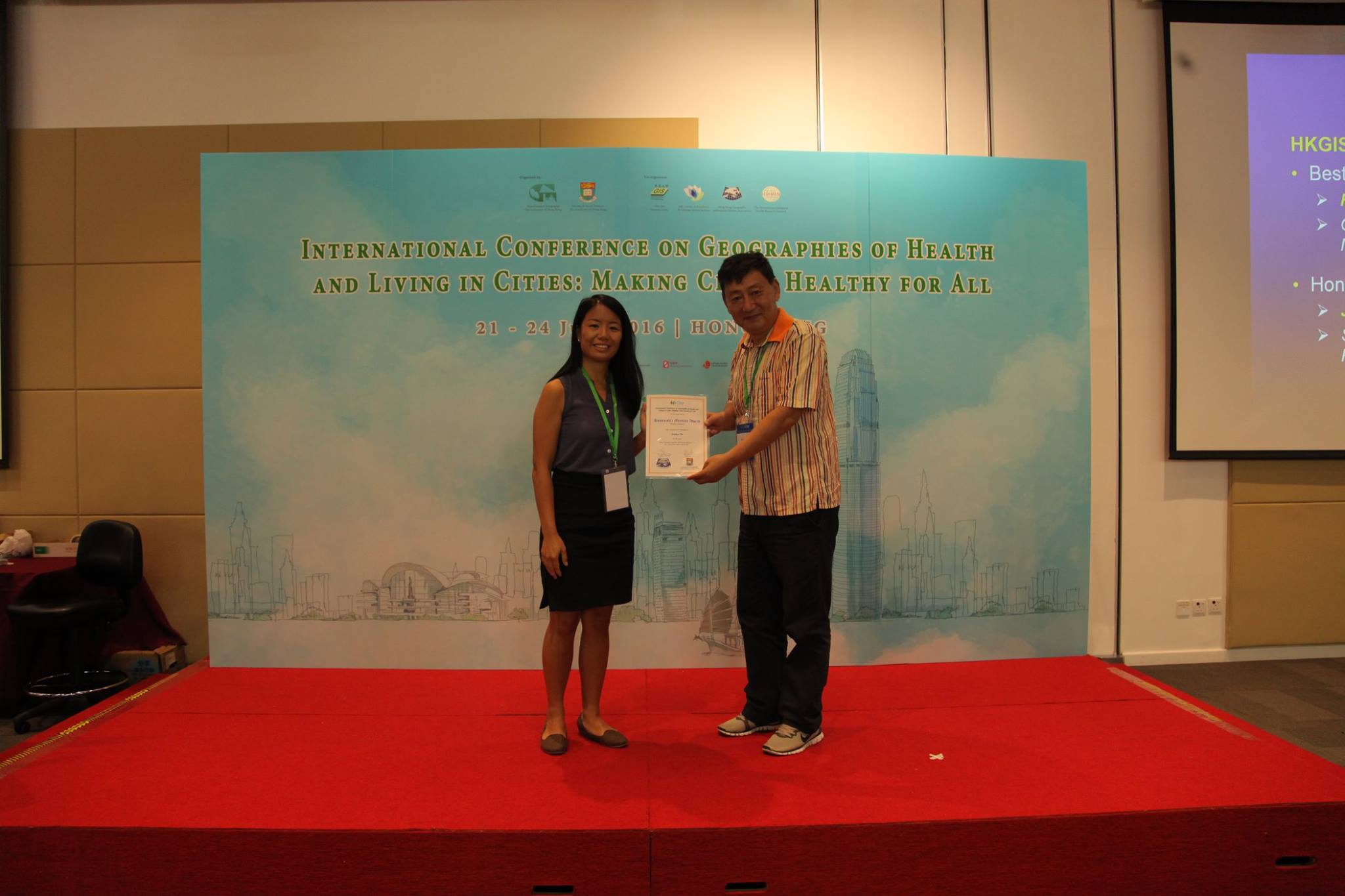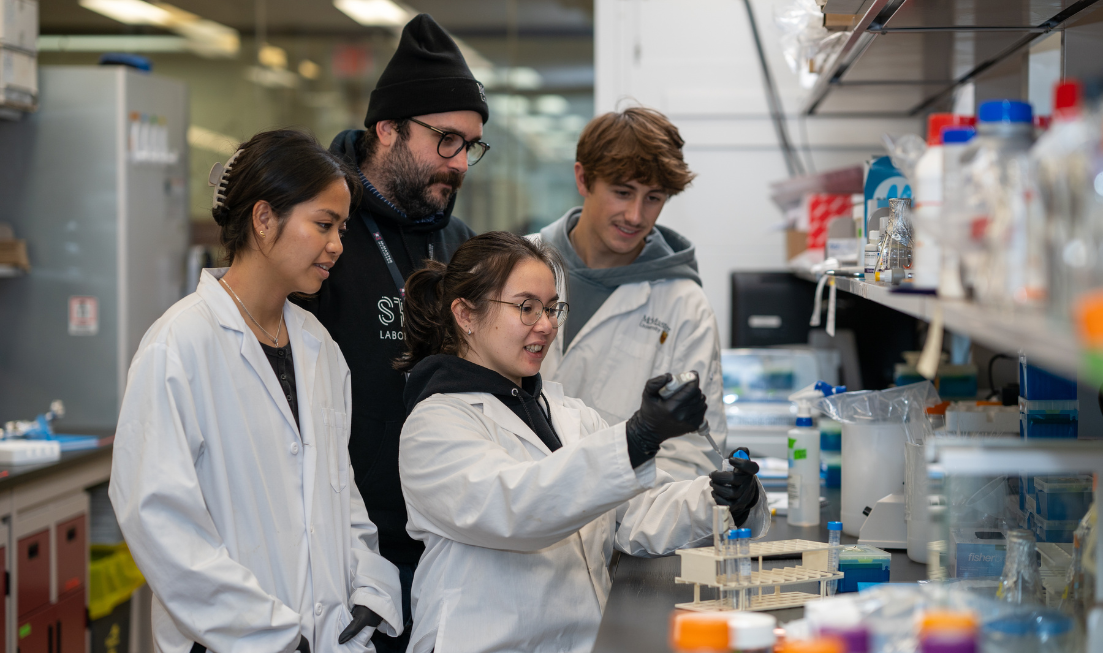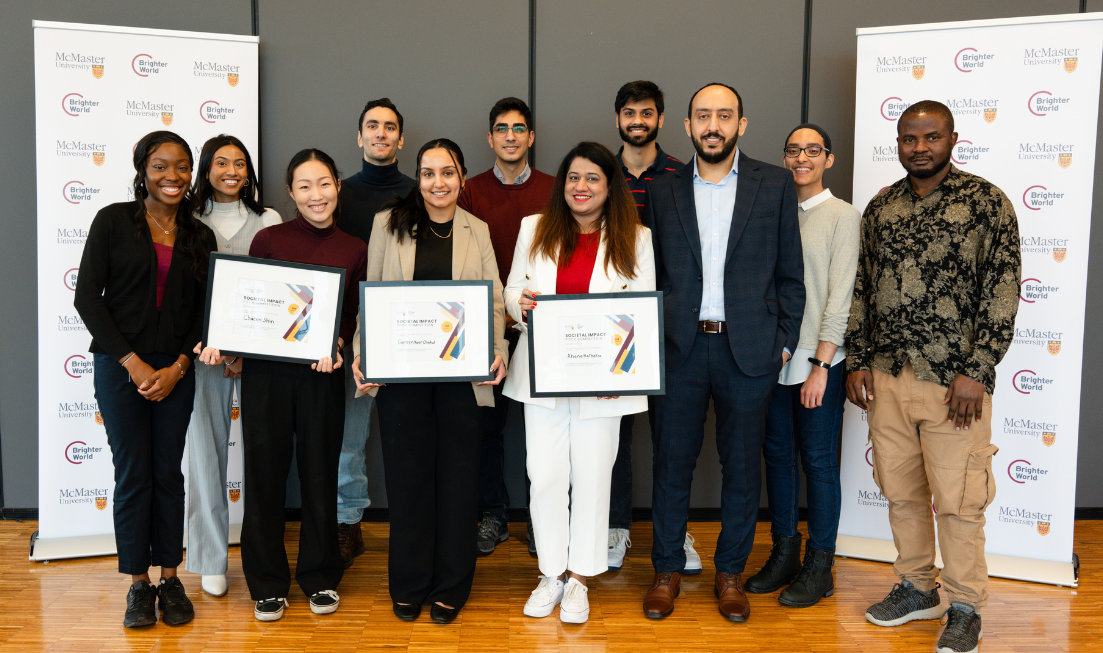Conference Award for Global Health Grad’s Research on Urban Planning Policy in India

MSc Global Health grad Jessica Yu receiving the Best Paper Award from the Hong Kong Geographic Information System Association (HKGISA).
The World Bank report warns that poor people living in slum conditions are the most likely to be killed or harmed by extreme weather. However, literature on the specific link and nature of problems faced by these people due to climate change and disasters is scarce. For MSc Global Health graduate Jessica Yu, this gap in literature presented an opportunity to conduct new research. Now that research is getting noticed.
Yu’s recently submitted conference paper was awarded the Hong Kong Geographic Information System Association (HKGISA) Best Paper Award (Student) – Honorable Mention, and has been published in Procedia Environmental Sciences. Her paper explores increasing urbanisation and its implications for slum dwellers in disaster management plans in Ahmedabad, India. And it proposes a new framework for consideration: Can Slum Upgrading Programs (SUPs) facilitate more disaster-proof urban planning? Moving forward, the findings from Yu’s study will be used by policymakers and urban planners in Ahmedabad and other major urban cities.
In June, Yu presented her Masters thesis work at the international conference on Geographies of Health and Living in Cities: Making Cities Healthy for All in Hong Kong. The conference focuses on the geographies of health and living in cities and invites contributions on all aspects of urban climate and environmental health research.
“The abstract I submitted for this presentation has implications for one of the main global goals of the United Nations: Make cities and human settlements inclusive, safe, resilient and sustainable,” says Yu. The UN’s 2030 Agenda for Sustainable Development includes 17 new Sustainable Development Goals that will guide policy and funding for the next 15 years, beginning with a historic pledge to end poverty.
Yu’s work has evolved from her Masters thesis research, supervised by an interconnected, multidisciplinary team including Dr. Harry Shannon, Dr. Lisa Schwartz and Dr. Andrea Baumann from McMaster, Mihir Bhatt from the All India Disaster Mitigation Institute, and facilitated by Dr. Kamath from Manipal.
For her thesis, Yu conducted semi-structured interviews and focus groups in Ahmedabad with community members, key informants from organisations in the civil society, and government officials. From there, her disaster management observations were that some infrastructure needs were not considered by government officials for slum upgrading, such as the repair of shelter roofs, and that barriers raised around urbanization and planning affected the required participation from government officials in disaster management. Yu’s research also noted the apparent normalization of disasters. “What we call ‘flooding’ has been described as ‘waterlogging’ by people in Ahmedabad,” she explains. “This issue raises important questions about how disasters are framed and the policy solutions that result from it, in Ahmedabad and beyond,” Yu concludes.
Andrea Baumann, director of McMaster’s Master of Science in Global Health program, is excited about the potential of Yu’s research to make change happen. “This work will ultimately drive action that will help to protect people in vulnerable situations. When it comes to solving complex global health issues, we cannot underestimate the importance of collaboration, interconnectedness between disciplines, and strong international partnerships in higher education,” says Baumann.
Global Health News
Related News
News Listing

Daily News ➚
McMaster earns top spot for graduate student research intensity in annual rankings
Global Health News
December 9, 2024

December 4, 2024

McMaster University (Global Health) and the University of Global Health Equity (UGHE), Rwanda Sign a Memorandum of Understanding (MOU)
Global Health News
November 28, 2024
